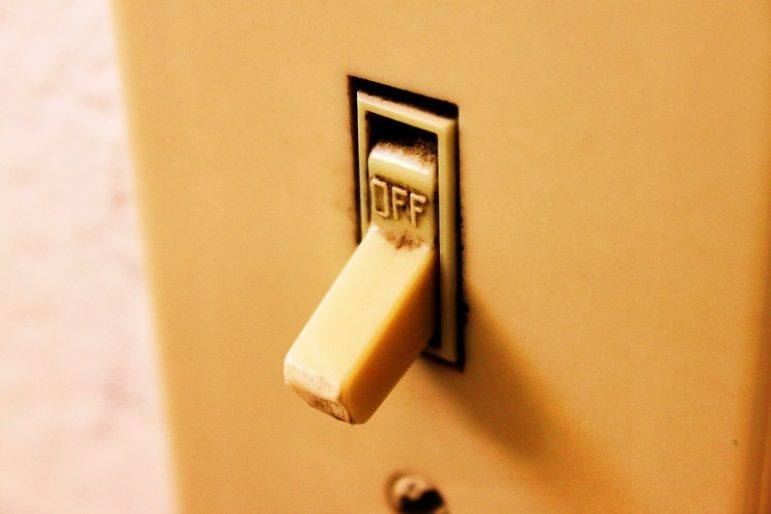
This week millions of New Yorkers will get a nasty shock: a big jump in their Con Ed bills. The utility just raised electric rates by 4.2 percent and gas rates by 7.5 percent, despite already charging the highest electricity rates of any major utility provider in the country.
Why is Con Ed raising our rates now, while their service is getting worse and worse–with increasing blackouts, explosions, and energy shutoffs? The answer is simple: They’re a privately owned monopoly that cares more about profits than people. Instead of prioritizing the needs of New Yorkers, they use us as a cash machine for their executives and shareholders. And when we can’t afford the bill, Con Ed shuts off our heat and lights.
What’s more, this rate hike comes in the middle of winter, when people depend on electricity the most. In 2018, at least five New Yorkers froze to death in their homes, including 73-year-old Bronx resident Dorothy Roque. Con Ed refused to comment on the death of Ms. Roque and never conducted an investigation. Unfortunately, this type of behavior is the norm for Con Ed: As a for-profit company, their loyalty lies with their shareholders rather than the people of New York. That’s why we need utilities that are publicly owned and democratically controlled.
Winter isn’t the only time when Con Ed falls down on the job. Last summer all five boroughs experienced blackouts during record high temperatures. On the hottest day of the year, Con Ed deliberately cut power to 50,000 Brooklyn residents in lower income neighborhoods to handle the increased demand for electricity. As temperatures continue to rise due to global warming, we can expect Con Ed to prioritize the wealthy over vulnerable New Yorkers – the only question is, which neighborhood will they sacrifice next?
In our own borough of the Bronx, Con Ed has frequently put lives at risk. Last July, residents of a public housing complex in Mott Haven lost power for an entire month, enduring limited access to water and electricity. In 2011 a power outage struck an Eastchester nursing home, killing a patient who was connected to a ventilator. Last September a gas line exploded a block from Grand Concourse; the impact was powerful enough to shatter the windshields of nearby vehicles.
If you think these blackouts and explosions are bad, Con Ed’s record on clean energy is even worse. They want to spend hundreds of millions of dollars to expand fossil fuel infrastructure, even though the state just passed a groundbreaking bill mandating rapid decarbonization. We cannot afford to allow Con Ed to deepen our dependence on fossil fuels while we face a climate crisis.
While Con Ed claims the rate hike is necessary to improve safety and reliability, they have broken their promises to fix the grid in the past. In 2009, they budgeted $80 million in improvements that could have prevented the citywide blackouts last summer – but they recklessly chose to skip those critical upgrades. Instead, they have focused on lining their pockets, raking in over $1 billion in 2018 and paying their CEO an outrageous $9.5 million in compensation.
Con Ed is a disaster, but it doesn’t have to be this way. Other areas of the country – such as Los Angeles, Sacramento, and the entire state of Nebraska – already have public power, and they are reaping the benefits. On average, public utilities are less expensive for customers, more safe and reliable, and quicker to transition towards renewables. Meanwhile, because they exist to serve people rather than profit, public utilities can reinvest a large part of their revenue back into the communities they serve.
The idea is catching on throughout the country: Campaigns for public power are moving forward in cities like Chicago, Boston, and Providence, and across whole states like California, where private utilities have caused massive, destructive wildfires. As communities fight to take back the energy system from greedy corporations, they show us all what a radical Green New Deal could look like: a wholesale transformation of our economy that can defeat the climate crisis, beat back rampant inequality, and bring democracy into every aspect of our lives.
In the ecological and economic crisis we’re facing, we can’t trust basic human rights like energy to corporations that only care about their bottom line. Con Ed is bad for the Bronx because it is dangerous, unreliable, expensive, and unaccountable. That’s why we need to bring utilities under public ownership and democratic control.To protect ourselves and our families, we need public power now.
Samelys López is a DSA Bronx and Upper Manhattan (B/UM) member, Housing Justice for All Activist and DSA-endorsed congressional candidate for NY-15. (@SamelysLopez) Jonathan Soto is a DSA Bronx and Upper Manhattan (B/UM) member and public school parent living in Throgs Neck. (@JWillSoto)









2 thoughts on “Opinion: Con Ed Rate Hike Strengthens the Case for Public Power”
LOL! Public Electric Utilities in NYC?? No sane person would want the same incompetent lazy people who run NYCHA and the MTA controlling our power grid. LOL
Yes. Or the police or fire departments, parks, sanitation department, the public hospital system. All public agencies are total disasters. It’s amazing any of us are still alive, nyc homeowner.